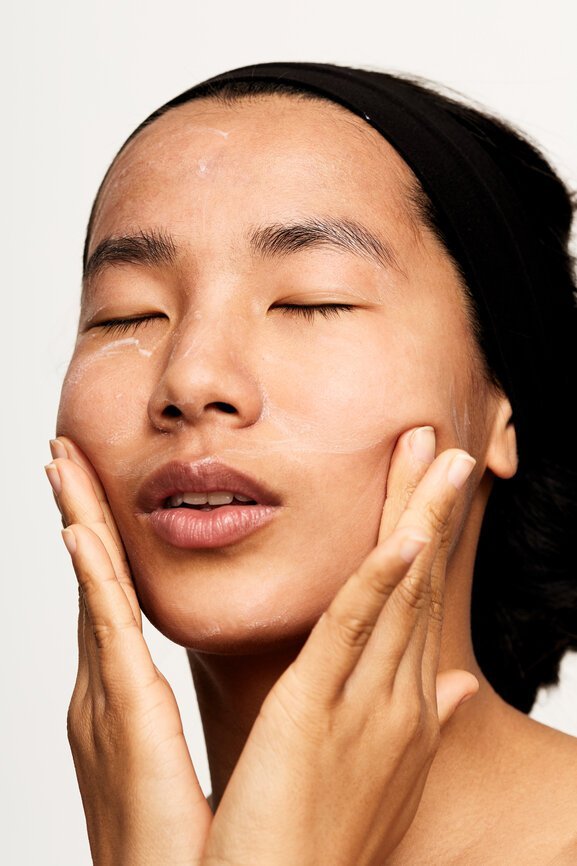It started in my late twenties—the talks about early menopause. Whether in conversation about dating or life planning, my mother would intermittently but gently remind my older sister and me that she had experienced the transition decades earlier. Explicit details were few, but the information loomed for years in the back of my mind.
Menopause is the cessation of a woman’s regular menstrual cycle, signaling the end of the natural reproductive period of her life. It is diagnosed once 12 months have passed since a woman’s last menstruation and typically begins when a woman enters her 50s. According to Dr. Stephanie S. Faubion, Director for the Mayo Clinic Center for Women’s Health, early menopause occurs between the ages of 40 and 45 and is seen in about three to five percent of women, and premature menopause happens under the age of 40 in about one percent of women. The NHS reports that most symptoms last around four years. For my mother, the symptoms began in her late-30s and lasted about seven.
“Menopause is the cessation of a woman’s regular menstrual cycle.”
“I was fortunate enough to have had two older sisters that had similar situations,” my mom tells me. “So I kind of knew that something was happening earlier than what it should have.”
Being genetically predisposed to early menopause has materialized in me an omnipresent anxiety. Menopause will come knocking, but I don’t know when, or how severely. And as a millennial who entered the post-college workforce mere months after the Great Recession began, my timeline for having children felt like it had already been reduced. We inherited a tougher job market, lower salaries, and increased living costs—all of which, as reports have shown, has led to a collective delay in major life milestones like traveling abroad, buying homes, and, yup, having kiddos. It feels like a candle, that I didn’t choose to light, is burning at both ends.
“It feels like a candle, that I didn’t choose to light, is burning at both ends.”
Because the onset of early menopause is seemingly inevitable for me, it can often feel like I have no choice but to surrender, like my cards are no match for its winning hand. I feel premature worry and embarrassment. I worry that I won’t recognize my body or the way it functions. I fear I’ll be embarrassed about feeling different, alone, and like I’m trying to conceal something (much like how I feel about the gray hairs that began sprouting on my head earlier than for others).
But it’s not a losing game. Through intentional and preemptive body care, honest conversations with fellow women and, more importantly, an individualized approach to treatment, we can regain some control. While preparing for this transition in our personal lives, we can assist ourselves and others in replacing silent discomfort with much-needed compassion. Here’s how.
WE MUST REFRAME THE NARRATIVE
According to Dr. Carrie Lam, who is board-certified in family, anti-aging, and regenerative medicines, the symptoms of menopause include lowered libido, vaginal dryness and painful sex, tiredness and insomnia, and increased allergies. And Dr. Renee Wellsenstein, a double-board certified OB/GYN and functional medicine specialist, adds to that list hot flashes, night sweats, weight gain, and mood changes—all of which, she says, are often associated with a loss of confidence, self-esteem, and poorer memory. She adds that their cumulative effect can lead to decreased performance at work where, typically, menopause is not discussed.
“The topic of menopause, in general, is taboo,” says Dr. Wellsenstein. “Instead of celebrating the entry into another beautiful phase of a woman’s life, it is dreaded due to these physical symptoms. Many joke about the symptoms, making a woman less secure in her ability to voice her concerns about what she is going through.” And she additionally notes that when it comes to early menopause specifically, women may fear that they did something to cause it, leading to even more “non-acceptance” around the topic.
“Many joke about menopause symptoms, making a woman less secure in her ability to voice her concerns about what she is going through.”
The Harvard Business Review suggests getting candid about our challenges so that other women can feel empowered to speak up; according to the publication, saying something as succinctly honest as “I’m going through menopause, and I keep forgetting things!” can be a start. Otherwise, it reports, a lack of social acceptance can make women feel unable to seek support, resulting in “unnecessary stress, anxiety, and depression.”
At 45 years old, Donna Brown, a now-69-year-old author and retired registered nurse, underwent a complete hysterectomy due to severe endometriosis, ultimately inducing menopause. She believes that if women become more open-minded, we’ll learn that we can, in her words, thrive rather than survive. “Early menopause is seen as taboo because society equates it to getting older,” she says, “and there is a stigma about aging that is undesirable and unwarranted. But women who have successfully navigated the transitional life stage of menopause have much to share with women who are struggling through it.”
(NO SURPRISE HERE!) WE MUST TALK TO OUR DOCTORS
Apart from her symptoms, my mother says her biggest challenge was getting her gynecologist to test for menopause. It was only after her third ask and the mentioning of her siblings that the doctor obliged and confirmed what she already knew to be true. Unfortunately, this experience doesn’t sound all that uncommon—which is why we must hold our ground if we feel concern.
“Premature menopause is often dismissed or misdiagnosed by the medical community.”
“At the moment, premature menopause is often dismissed or misdiagnosed by the medical community,” says Dr. Lam. “That’s why, if you think you may be going through menopause early, it’s best to seek the help of a trained medical professional who is experienced in identifying and correcting hormone imbalances.”
Hormone therapy is the treatment collectively agreed upon by the North American Menopause Society (where Dr. Faubion also serves as Medical Director), the American Society for Reproductive Medicine, and the Endocrine Society. They believe it plays one of the most important roles in the management and relief of menopause’s symptoms and share the rare but increased risks of blood clots and breast cancer that can come with therapy, but maintain that “individualization” is key in the decision to use it.
My mother, regrettably, forwent that decision. “I’ve always been a very anti-synthetics-in-my-body person,” she says. “Even though the doctors were like, ‘You can! It’s okay!’ and they try to reassure you, I personally had a fear of putting anything that wasn’t natural in my body. So I chose not to do anything and to just suffer though it—which was not easy.” (She vaguely recalls being put off by horse urine as an ingredient in one of the estrogen medications. These are, indeed, called conjugated equine estrogens.)
“I should’ve made the effort to understand menopause better and explore all the options because I think I did myself a disservice.”
“I didn’t really spend the time doing the research with pros and cons,” she says. “I personally think that I should’ve made the effort to understand menopause better and explore all the options because I think I did myself a disservice. A myth versus a fact is very important, and I think that I could’ve been driven by myth.” Asked if she’d do things differently, she would.
There are many hormone therapy options approved by the FDA; there are also commonly used supplements, like black cohosh and evening primrose oil, for those who prefer to treat their symptoms naturally. Health writer Tracy E. Hopkins shares with Blood + Milk her use of sage tea and magnesium, and the North American Menopause Society has weighed in on the reported efficacy of these at-home remedies.
No matter our preferred path, creating a personalized plan with a professional doctor while keeping informed of and in tune with our own bodies is ideal. Dr. Faubion reiterates, “Women with premature menopause, in particular, require an individualized approach that addresses their overall health. This includes conversations about reproductive options, mental health, and physical health given the potential problems they can experience.” (These problems can consist of increased risk of cardiovascular disease, cognitive impairment, Parkinsonism, osteoporosis, mood disorders, sexual dysfunction, and early mortality.)
“Premature and early menopause are unusual. We’re trying to manage that to avoid some of the potential adverse long-term health outcomes.”
“Premature and early menopause are unusual and shouldn’t be considered normal,” she says. “We’re trying to determine a cause and manage that to avoid some of the potential adverse long-term health outcomes associated with losing estrogen early.”
WE MUST TAKE CARE OF OUR BODIES
The causes for premature menopause—defined by this study as premature ovarian failure before the age of 40—may be due to genetics, autoimmune disorders, infections, metabolic syndromes, or enzyme deficiencies. The Mayo Clinic additionally reports chromosomal defects and toxins as possible causes; however, it defines menopause and ovarian failure as two different conditions.
Dr. Wellsenstein agrees that a genetic predisposition may be a cause of early menopause, but says it is oftentimes the environmental and lifestyle factors that our genes are exposed to. She suggests avoiding a number of everyday factors, including hazardous behaviors (like smoking cigarettes and consuming high amounts of alcohol), exposure to endocrine disruptors (like pesticides and phthalates, the latter of which are often found in beauty products and plastics), and heavy metals and inflammatory foods—both of which, she says, can contribute to autoimmunity, a possible predisposing condition for early menopause.
“Dr. Wellsenstein suggests avoiding a number of everyday factors, including hazardous behaviors, exposure to endocrine disruptors, and heavy metals and inflammatory foods.”
“Eating a whole food diet high in fiber to feed the good gut microbes is essential,” says Dr. Wellsenstein. “Avoiding refined carbs, sugars, and processed foods is key and, rather, eating an anti-inflammatory diet high in healthy fats, vegetables, and fruits is crucial.”
Recalling additional side effects like osteoporosis (due to the sharp decline in estrogen which protects our bones), as well as disruption to our bowels, registered dietician Jennifer Katz says, “Slow the muscle loss and prevent weight gain with a regular exercise routine that includes strength and high-intensity interval training. And stay ahead of the constipation issue by rotating in recipes that feature whole grains, nuts, seeds, beans, and legumes.” Katz also advises avoiding the cravings that are common during menopause by planning meals and snacks in advance.
For my mother, the irritability and night sweats were bad, but she struggled most with one side effect. “The hardest thing for me was the changing of my entire body, the slowing of the metabolism,” she says. “That was the most severe.”
It may sound unreasonable to feel fortunate in the face of such a circumstance but, much like my mother, I feel lucky to have someone in my life that shares the experience, if this too becomes my design. As the statistics confirm that early menopausers are a small community, community is exactly what we should seek when feeling curious, scared, or out of control. But more importantly, we must call on our doctors when we feel concern and ask questions until we feel comfortable.
How did you manage the physical and mental effects of menopause (or how are you planning to)? Share in the comments below!
Danielle Cheesman was born and raised in New Jersey, where she lived until moving to Philadelphia to study journalism at Temple University. She has spent her years writing and developing editorial visions for music, art, and lifestyle brands. Now residing in Los Angeles, you can usually find her taking pictures, making playlists, or cuddling her pup. Say hi on Instagram!

















I don’t think the title of your article matches the content lol. Just kidding, mainly because I had some doubts after reading the article.